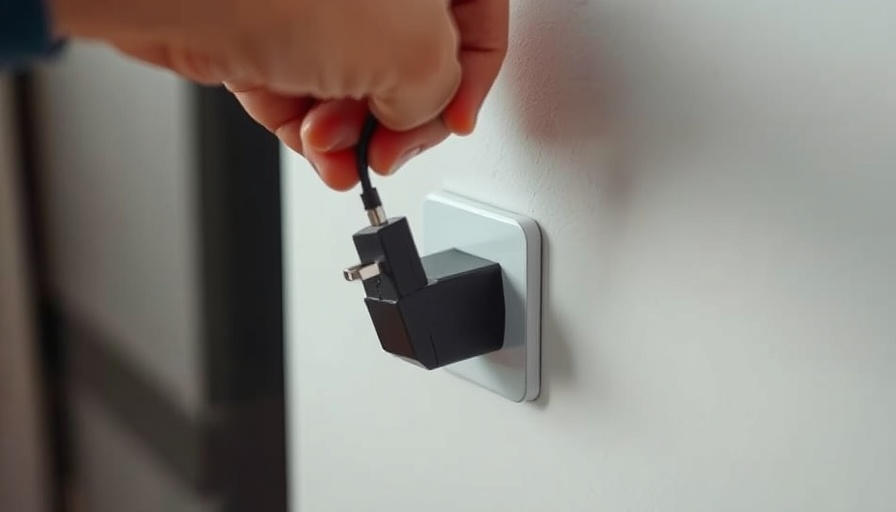
Understanding Smart Plugs: A Double-Edged Sword
Smart plugs offer a world of convenience, allowing users to control their appliances remotely, schedule usage, and monitor energy consumption. However, with great power comes great responsibility. In the quest for modernizing our homes, there are specific appliances that should never be connected to these intelligent devices, particularly for safety and efficiency reasons.
Why Certain Appliances Are Off-Limits
When considering which appliances are suitable for smart plugs, it's crucial to evaluate their electrical needs. High-wattage devices like space heaters, ovens, and refrigerators can draw significant power, potentially exceeding the smart plug's capacity. This scenario can not only damage the smart plug but also present fire hazards. For instance, a space heater can lead to overheating, thus jeopardizing safety in compact living spaces like those found in Metro Vancouver.
Common Misconceptions About Smart Plugs
One major misconception is that all appliances can seamlessly adapt to smart technologies. However, many homeowners may not realize that some devices require direct connections to wall outlets due to their power demands. For example, connecting an air conditioner to a smart plug may seem convenient, but it can risk overloading the plug, defeating the purpose of innovation. Understanding these limitations is essential for maximizing both safety and efficiency in our homes.
Additional Considerations for Small Spaces
For those residing in Metro Vancouver, optimizing small outdoor and indoor spaces demands thoughtful planning with every device. Smart plugs can enhance convenience, but careful consideration must be given to which devices are connected. Combining outdoor heaters with a smart plug, for example, appears attractive but can be problematic if power regulations are ignored.
Maximizing Your Home’s Capacity with Smart Devices
Despite the limitations, integrating smart technology into your living environment can provide impressive efficiency. By utilizing smart plugs with lower-wattage devices, such as lamps and small kitchen appliances, you can effectively manage energy needs without compromising safety. Additionally, with limited backyard space, consider how smart plugs can help you create a more vibrant outdoor environment while enhancing your home’s functionality.
Conclusion: Embracing Smart Technology Wisely
As Metro Vancouver residents explore innovative ways to utilize their spaces, incorporating smart technology must be approached with an understanding of safety regulations and appliance limitations. Be proactive in choosing which appliances are suitable for smart plugs, as this knowledge contributes to a safer and more efficient home. Embracing smart technology means making informed choices that benefit your lifestyle and the safety of your living environment. Take the time to assess your appliance needs, consult with experts if necessary, and enjoy the conveniences that smart technology has to offer.
 Add Row
Add Row  Add
Add 




Write A Comment